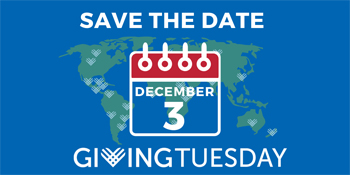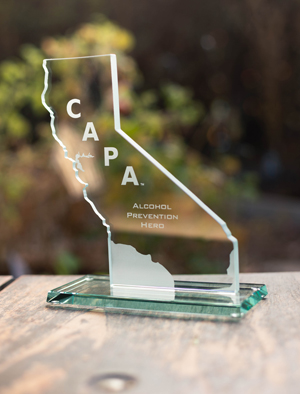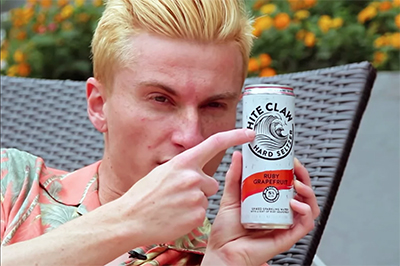Blog
On #GivingTuesday, Make Your Stand Against Alcohol Harm
- Details
- Created: Friday, November 29 2019 14:27
 Tuesday December 3, 2019 is #GivingTuesday which kicks-off our year-end fundraising campaign. If you give through FaceBook on #GivingTuesday, your gift will be doubled. This month we would like to raise $1,000 to support the critical work we have been doing since 1987 to reduce alcohol-related harm. Your generosity helps us continue to fight negative industry practices and policies which threaten the health and safety of our families and communities. Please give through FaceBook on #GivingTuesday and see your gift doubled.
Tuesday December 3, 2019 is #GivingTuesday which kicks-off our year-end fundraising campaign. If you give through FaceBook on #GivingTuesday, your gift will be doubled. This month we would like to raise $1,000 to support the critical work we have been doing since 1987 to reduce alcohol-related harm. Your generosity helps us continue to fight negative industry practices and policies which threaten the health and safety of our families and communities. Please give through FaceBook on #GivingTuesday and see your gift doubled.
Here are just a few achievements for 2019:
- Once again, we led the fight that stopped a policy to extend hours of alcohol sales to 4 A.M. in California bars, restaurants, and clubs
- We published The High Cost of the 4 A.M. Bar Bill: A cost-benefit analysis of extended alcohol trading hours in Los Angeles by Alcohol Research Group (ARG)
- Our powerful new advocacy tool - OneClickPolitics - provided a channel for our constituents to send over three thousand messages to California legislators and the Governor
- Our Youth For Justice program celebrated its fourth year of providing youth leadership training for young people and their parents who reside in the Canal neighborhood of San Rafael
- Membership and active participation in the California Alcohol Policy Alliance (CAPA) and the Los Angeles Drug and Alcohol Policy Alliance (L.A.DAPA) increased throughout the year and played a significant role in stopping the 4 a.m. bar bill
These achievements represent just some of the challenges we face annually from Big Alcohol. Our effective response would not be possible without your engagement and financial contributions. This continued support of our works helps to amplify our collective voice and extend our positive influence at national, state, and local levels. Your assistance makes a real difference in protecting public health and safety. Please donate through FaceBook this year and help move us closer to a healthier and more peaceful tomorrow.
DONATE to Alcohol Justice on #GivingTuesday and see your gift doubled.
2019 CAPA Summit Wrapup: From Local Power to Statewide Clout
- Details
- Created: Tuesday, November 26 2019 15:43
 On Thursday, November 7, the approximately 150 attendees of the 4th Annual California Alcohol Policy Alliance (CAPA) Summit were confronted with two stark facts: advocates for a healthier California face daunting challenges, and in the face of those challenges, they can achieve remarkable victories. The Summit marked the end of a long and difficult legislative session, highlighted State Sen. Scott Wiener's seemingly unstoppable bill to extend bar closing hours suddenly killed on the assembly floor, in no small part due to local pressure applied by the coordinated efforts of CAPA. Membership celebrated that victory, but with that celebration came the realization that there were many more fights ahead.
On Thursday, November 7, the approximately 150 attendees of the 4th Annual California Alcohol Policy Alliance (CAPA) Summit were confronted with two stark facts: advocates for a healthier California face daunting challenges, and in the face of those challenges, they can achieve remarkable victories. The Summit marked the end of a long and difficult legislative session, highlighted State Sen. Scott Wiener's seemingly unstoppable bill to extend bar closing hours suddenly killed on the assembly floor, in no small part due to local pressure applied by the coordinated efforts of CAPA. Membership celebrated that victory, but with that celebration came the realization that there were many more fights ahead.In recognition of the emerging power of a united CAPA voice, the Summit theme was "Building a Movement." The event opened with a recognition of individuals who were integral to that building effort. First, CAPA issued an award to Los Angeles City Council Member Paul Koretz, his Communication Director Alison Simard, and his Director of Policy and Legislation Jeffrey Ebenstein. Councilmember Koretz was an early and vocal opponent of extended last calls, even as Los Angeles Mayor Eric Garcetti endorsed the bill. With Koretz and his staff's willingness to stand up against the blatant harms threatened by the bill, backed by the voices of Los Angeles residents and the members of CAPA, the Los Angeles city council issued a resolution condemning the bill, leading to its defeat on the California State Assembly floor.
CAPA was also proud to commemorate the vital public health and safety contributions from California Assembly Member Tom Lackey; Los Angeles City Council Member Paul Krekorian; Community Promotora Mirian Castro, and CAPA Co-Chair Richard Zaldivar.
 The awards took the form of Wakinyan Thunder necklaces, handmade and individualized pieces by Oglala Lakota artists and activists Kathryn Thunder Hawk and Robert Swimmer. "The necklaces were made with good energy, with good thoughts, and blessings," presenter Veronica de Lara, CAPA co-chair, explained. "Each piece is meaningful in Lakota culture and they provide strength and fortitute to those in a path of service to all."
The awards took the form of Wakinyan Thunder necklaces, handmade and individualized pieces by Oglala Lakota artists and activists Kathryn Thunder Hawk and Robert Swimmer. "The necklaces were made with good energy, with good thoughts, and blessings," presenter Veronica de Lara, CAPA co-chair, explained. "Each piece is meaningful in Lakota culture and they provide strength and fortitute to those in a path of service to all."Between rounds of awards, attendees broke out into special topic sessions, including:
- Social Justice Movements
- Community Engagement
- Authentically Integrating Voices of the LGBTQ+ Community
- Proactive Legislation
"I'm proud of what CAPA accomplished this year," said Mayra Jiménez, Advocacy Manager for CAPA. "But alcohol is not a simple problem. It attacks the most vulnerable, and the industry is so committed to hiding the harm. We need to make sure everybody's voice is heard loudly in this fight."
The session concluded with a special presentation from California Department of Alcoholic Beverage Control (ABC). The session was intended to both make the workings of ABC transparent and to provide a venue for dialogue between the community and the department. Following a presentation on ABC operations and pending legislation--including the implementation of AB 1221, which mandates responsible beverage service training for all California bars and restaurants--ABC Director Jacob Appelsmith stood for a lively Q&A session. Copies of the ABC presentation are available on the CAPA website.
The Summit closed with a reiteration of the goals and challenges facing CAPA and everyone working in the harm prevention space. Attendees were left to think about what they could accomplish in 2020. Hopefully, the answer was, in part, "More than we thought we could this morning."
WATCH Councilmember Krekorian's speech from the 2019 CAPA Summit.
New Hard Seltzer and the Big Old Lie
- Details
- Created: Wednesday, November 27 2019 19:54
 No beverage product has received more publicity over the past year than hard seltzers. These colorless carbonated alcoholic drinks often come with the same faint fruit flavors of La Criox. Hard seltzer brands such as White Claw, Bon & Viv, and Truly advertise their low calories, lack of gluten, and inclusion of fruit. It's nice to think that consumers, jaded on the repeated, deceptive, manipulative, and sometimes overtly corrupt efforts to connect alcohol to health, are immune to the "healthy drinking" scam. But hard seltzers are one of the most rapidly growing product groups in the industry. According to Vox.com, their current market share is estimated at $550 million, and at least one forecaster has that growing to as much as $2.5 billion by 2021.
No beverage product has received more publicity over the past year than hard seltzers. These colorless carbonated alcoholic drinks often come with the same faint fruit flavors of La Criox. Hard seltzer brands such as White Claw, Bon & Viv, and Truly advertise their low calories, lack of gluten, and inclusion of fruit. It's nice to think that consumers, jaded on the repeated, deceptive, manipulative, and sometimes overtly corrupt efforts to connect alcohol to health, are immune to the "healthy drinking" scam. But hard seltzers are one of the most rapidly growing product groups in the industry. According to Vox.com, their current market share is estimated at $550 million, and at least one forecaster has that growing to as much as $2.5 billion by 2021.The rise of hard seltzers are the dark side of a hopeful trend: younger generations may be less likely to use alcohol than their forerunners. It is unclear whether this decline comes from the economic hardships Milennials and "Gen Z" face, from the rise of legal cannabis, from effective prevention campaigns, or from shifting trends. What is clear is that Big Alcohol is concerned, and hard seltzers are what they hope to be the magic bullet. Speaking the Brewbound (subscription required), Molson Coors confirmed that their new hard seltzer, Vizzy, is targeted directly at the 21 to 34-year-old market. Ultimately, hard seltzers are just another incarnation of flavored malt beverages--cheap, easy-to-drink alcohol that carries significant appeal to novice drinkers, especially those underage.
Needless to say, the marketing surrounding hard seltzer is an overt, if well-worn, lie. Alcohol use alone carries health risks. Even low levels of drinking can leave a consumer vulnerable to cancers and certain cardiovascular diseases. As consumption rises, organ damage, accidental injury, motor vehicle crashes, violence, and self-harm become significant risks as well. Alcohol dehydrates, may slow muscle recovery, and interferes with metabolism--never mind the hangover (and potential for long-term mental decline). This is part of why this same lie needs to be constantly repackaged for new generations.
As the old lies recur, so do the old bad actors. FourLoko, a manufacturer notorious for selling products in such large containers and at such high concentration that a single can becomes the equivalent of binge drinking, has introduced its own line of 12% ABV seltzers in 22 oz. cans. This is the equivalent of 5 White Claws, which, at 5%, are already towards the higher end of canned alcohols. Multiple bars, meanwhile, use the seltzers as a base to build mix drinks.
And with bad actors come bad laws. In 2019, Big Alcohol successfully conned the California legislature into placing its products in the same tax class as beer, which is already the least taxed of all alcoholic products. This comes despite the fact that their production often bears more in common with hard liquors than Bud Light (and at 12%, FourLoko's product is stronger than many wines).
"These companies are making potentially high-potency, nearly flavorless alcoholic beverages, and paying back peanuts," said Michael Scippa, Public Affairs Director for Alcohol Justice. "We need tax rates to reflect the real harm. When you get around 6 or 7%, you're already selling more than single serving of alcohol, especially in big cans. We need to get rid of this loophole and get a Charge for Harm tax system in place, starting today."
Already, backlash is in place. Writing for Eater.com, Jaya Saxena points out that "positioning alcohol as a tool to build a better, cleaner body is just the flip side of positioning it as a cool potion necessary for any adult party—either narrative makes it harder to have a healthy relationship with it." The alcohol harm prevention world needs to be taking a long, hard look at these products, and speaking loud against the healthy drinking myth. Fighting the hype is the only healthy choice.
READ MORE about the exploitive myths of healthy drinking.
READ MORE about the alcohol industry's efforts to corrupt NIAAA.
READ MORE about Charge for Harm in California.
More Articles ...
Subcategories
Help us hold Big Alcohol accountable for the harm its products cause.
| GET ACTION ALERTS AND eNEWS |
STAY CONNECTED    |
CONTACT US 24 Belvedere St. San Rafael, CA 94901 415-456-5692 |
SUPPORT US Terms of Service & Privacy Policy |


